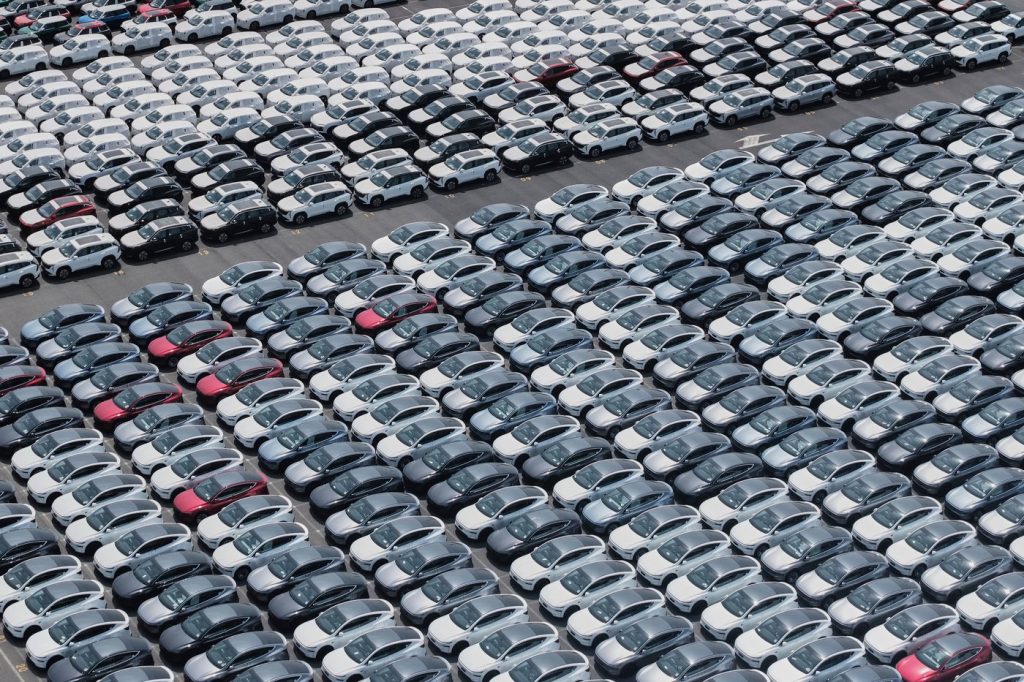HONG KONG (AP) - China's exports of electric vehicles (EVs) saw a significant increase in September, doubling from the same month last year as domestic automakers focused on expanding their market reach internationally. The rise in exports comes amid challenges in the domestic market, where competition and price wars have put pressure on profit margins.
According to the China Association of Automobile Manufacturers, domestic passenger car sales grew by 11.2% year-on-year in September, which is a decline compared to a 15% increase recorded in August. Exports of new energy vehicles (NEVs), which encompass battery electric vehicles and plug-in hybrids, surged by 100% to 222,000 units in September. However, this figure was slightly lower than the 224,000 units exported in the previous month, August.
As Chinese EV makers face growing overcapacity and intensified competition within the domestic market, they are increasingly eyeing overseas opportunities, particularly in regions like Europe and Southeast Asia. A recent report from the U.S.-based consultancy Rhodium Group highlighted that these automakers invested more in international markets than within China for the first time since 2014.
Notably, BYD, one of the largest EV manufacturers in China, declared this month that the United Kingdom has become its largest market outside of China. The company's sales in the UK skyrocketed by an impressive 880% year-on-year in September, marking a substantial influx into international markets.
In addition to Europe, Chinese automakers are actively increasing their investments in the Middle East and Africa as they adapt to trade barriers imposed by the European Union, the United States, Canada, and other nations, including stringent tariffs on Chinese-made EVs. This shift in focus is a strategic response to the evolving global trade landscape.
Domestically, competition remains fierce, leading manufacturers to implement measures to address the price wars that have been detrimental to their profit margins. September marked the first time since February 2024 that BYD's domestic sales have decreased, falling by 5.5% compared to the same month in the previous year. Despite BYD's decline, several competitors within the sector were able to report strong growth in their sales figures.
Traditionally, September in China is a peak month for auto sales, a time known as "Golden September," during which automakers launch various new models. The adoption of subsidies for trade-ins of new energy vehicles has contributed to boosting consumer demand and overall market sentiment, although certain local governments have recently begun to suspend these subsidy payments.
Overall, the dynamics within the Chinese electric vehicle market are shifting, with manufacturers increasingly looking beyond their borders to sustain growth amidst domestic challenges. The combination of rising exports, changing consumer sentiments, and evolving international trade regulations will continue to shape the landscape of the automotive industry in China and abroad.











